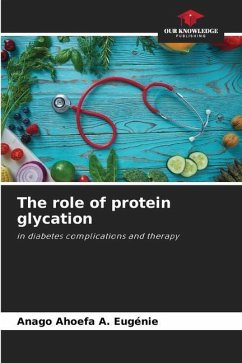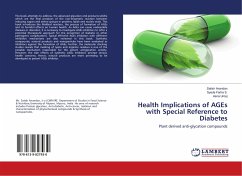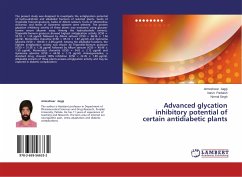The binding of an ose, frequently glucose, to proteins is a common biochemical reaction leading to the formation of Advanced Glycation Endproducts (AGEs). The permanent hyperglycemia observed during diabetes leads to an increase in the glycation rate of proteins, with consequent impairment of their functions. Several authors have demonstrated the link between the accumulation of AGEs in various organs and the microvascular and macrovascular complications observed in diabetes. Other studies have shown that these diabetic complications and several other metabolic diseases result from a series of deleterious processes initiated by AGEs. These include receptor-mediated inflammation, conformational changes in macromolecules leading to aggregate accumulation, and an immune response mediated by the immunogenicity of AGEs.The main therapeutic approaches for the treatment of diabetes involve insulin administration, inhibition of polysaccharide-digesting enzymes (alpha-amylase and alpha-glucosidase) and glycation inhibitors.
Bitte wählen Sie Ihr Anliegen aus.
Rechnungen
Retourenschein anfordern
Bestellstatus
Storno








